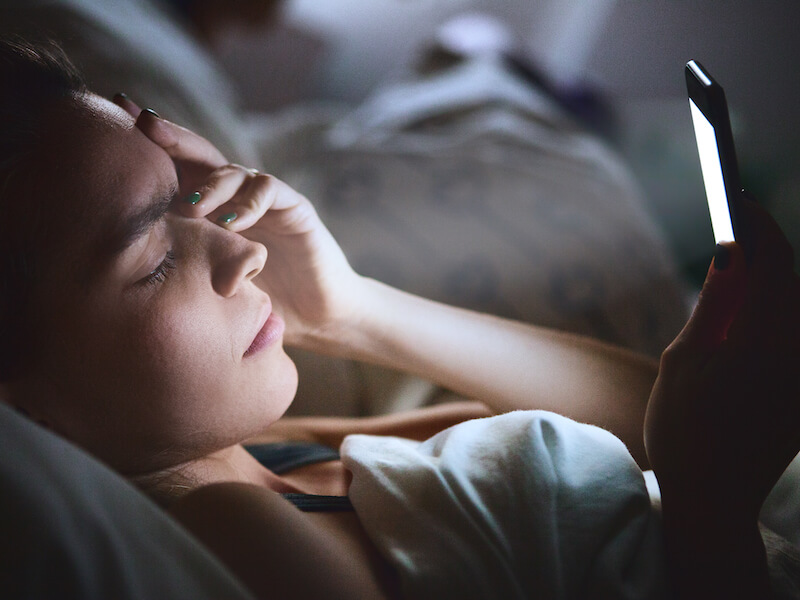
You thought your sinus infection was clearing up. You’re sneezing less, your headache is nearly gone, and your nose isn’t as runny. But when you went to bed to go to sleep, you started to feel terrible again.
Your sinus infection does seem more severe at night. Many people have encountered this very discouraging development on their road to feeling better. But why do things get so much worse at night?
Sinus infections do feel more severe at night
It’s not difficult to feel like you are having a relapse when you lay down at night and suddenly feel awful. You’re feeling worse even though you’re resting? That doesn’t seem right. But just because your infection seems worse at night doesn’t mean it’s coming back. So it’s not always an actual setback if you have more severe symptoms at night.
Having said that, as with any sickness, sleep is be critical to your recuperation. Your immune system depends on a solid night’s sleep to function correctly. So when your sinus infection keeps you up, you might indeed feel under the weather the next day. Determining why your sinusitis symptoms are getting worse may help you sleep more soundly and feel a little better as a result.
The reason why sinus infections seem more severe at night
A combination of factors are most likely at work. Here are some of the more likely causes:
- Changes in your blood flow: Inflammation is a big part of the discomfort when you’re dealing with a sinus infection. Sinus pressure is one outcome of this. Blood flow and blood pressure are closely linked to inflammation.The theory is that when you lie down, the blood vessels in your sinuses open somewhat. In most cases, this isn’t a problem, it’s just a normal part of living. But this raised blood pressure and additional blood flow could result in greater inflammation when you’re dealing with a sinus infection. And your symptoms can, consequently, be aggravated by that inflammation. Try sleeping with your head elevated to relieve pressure.
- Gravity is working against you: When you’re standing up, it’s simple enough for your body to clear your sinuses, just let gravity do the work! But when you lay down in bed, the gravity of the situation is different. It makes all of the liquid in your sinuses stay put, keep collecting, and build up the pressure you feel. This can make you feel awful as you’re attempting to sleep for the night. Your infection could get worse as postnasal drip, having nowhere else to go, goes down into your throat. In this case an extra pillow or elevating your head can also help. You can also try an over-the-counter decongestant or sinus medication to help reduce your symptoms (and, naturally, follow all the requisite directions for any medications you take).
- There are fewer distractions: You tend to be busier and more energetic when it’s daytime. You concentrate on the activity in front of you or the Netflix series you’re binging. When you go to bed, though, all of those distractions disappear, and you’re left with nothing to pay attention to except the annoying drip of mucus in the back of your throat or the pounding sinus pressure beneath your eyes. This can make it feel as though your symptoms are worse but, in reality, you’re just recognizing them a little more. Try to use a humidifier. The white noise can help give you something to think about, and the added humidity in the air can help relieve your symptoms.
If your sinus infection continues to linger, whether is gets worse at night or not, it’s important to get medical treatment so you can have relief from your symptoms. Give us a call, we can help!